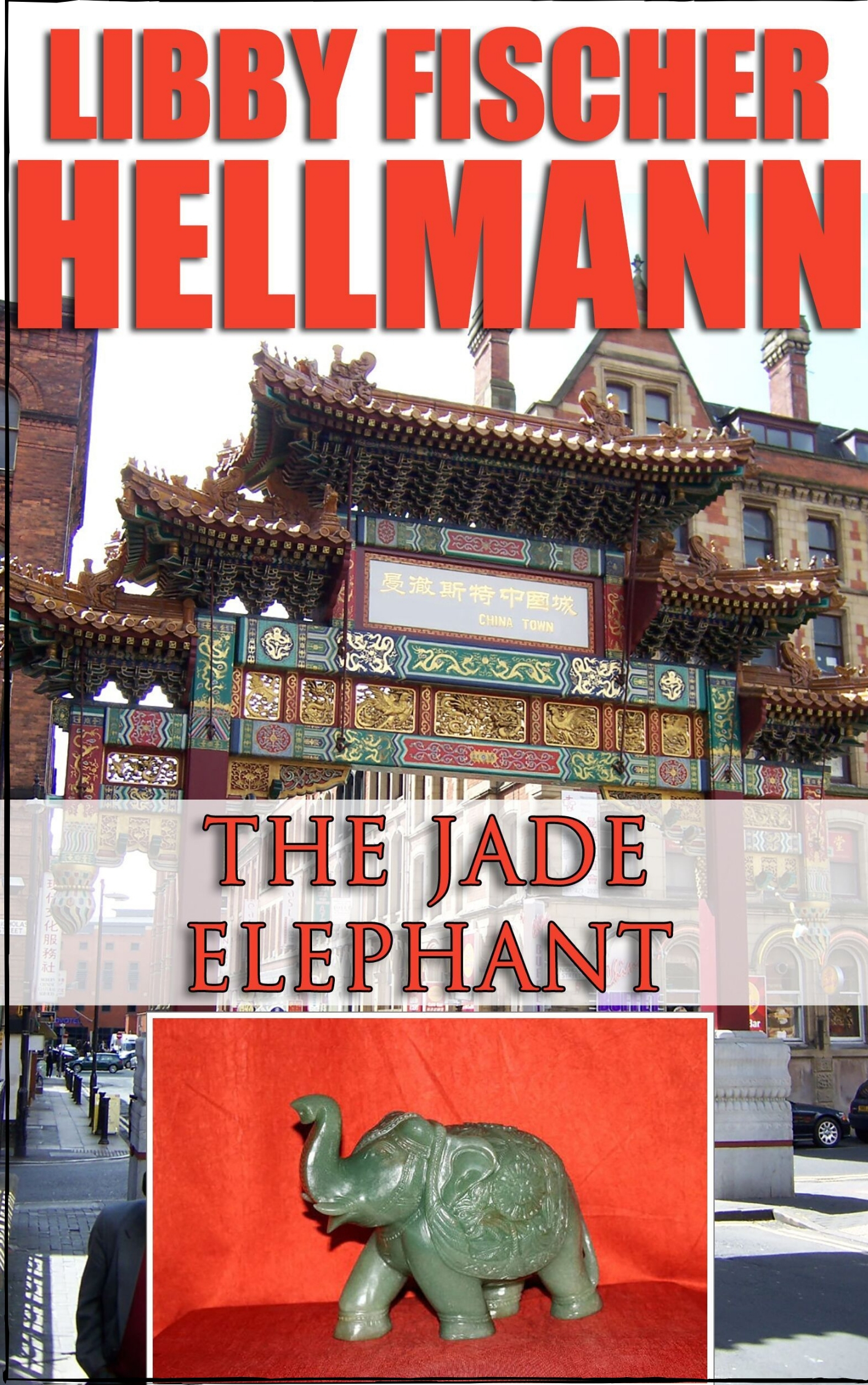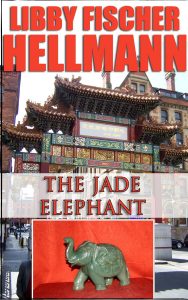Libby’s story, the Jade Elephant, was originally published in the Expletive Deleted Anthology, Bleak House Books, 2007. It was subsequently published by the Top Suspense Group in 2011. Libby describes it this way: In the sleazier parts of Chinatown, menus are stained, kitsch is king, and even walking down the street after dark is risky. Add in two lifelong criminals seeking redemption, and the result was “The Jade Elephant.”
Excerpt
Gus stared at the jade elephant in the window of the pawn shop, wondering if it could be his salvation. A soft translucent green, about ten inches tall, its trunk curled up in the air as if it was trumpeting the joy of existence. Charlieman, his fence, said that meant good luck. Charlieman was Chinese.
Gus folded his newspaper under his arm. There wasn’t much to distinguish this from any other pawnshop in Chinatown. Tucked away in a building with an illegal gambling operation upstairs, it was a grim and dingy place. Faded yellow Chinese characters—who knew what they said?—covered the window. A shabby dragon sat above the door spitting imaginary fire.
He trudged down chalky cement blocks uninterrupted by shrubbery and pushed through the door of the restaurant. One of the few that hadn’t fled to the suburbs, it was a dimly lit place. That wasn’t all bad—at least you couldn’t see the stained yellowed napkins and the scratches on the tables.
Pete was in the second booth, slurping his soup. The only other customers were three Asian men at a back table. Chinatown’s Chamber of Commerce would have you believe the place was bustling with commerce, but much of that commerce was conducted by dubious “businessmen” in alleys or street corners or greasy Chinese spoons like this. Rumor was the mayor had finally slated Chinatown for urban renewal. Sure, Gus snorted.
Pete stopped slurping and looked up. “What kept you?”
“Traffic.” Gus slid into the seat across, wondering why they still came here at all. Habit, he figured. Inertia.
His partner grunted and went back to his soup.
“How is it?”
“Like always.”
A waiter came over and offered Gus a laminated plastic menu whose edges curled away from the page. Gus waved it away. “The usual, Chen.”
“You want egg roll or soup?” he asked, rolling his “r’s” so they sounded like “l’s.”
Gus pulled his coat more tightly around him. The December cold had seeped into his bones. “Soup.”

